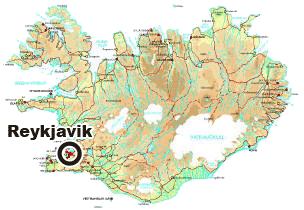 |
 |
 |
|||
|
Iceland is Europe's westernmost country, the second largest island in Europe, a little over 3 hours flight from London, Paris, Amsterdam or Copenhagen. The first settlers came to Iceland from Norway and Ireland in the 9th century. The Althingi, the world's oldest functioning legislative assembly, was established in the year 930 AD. Iceland has a strong economy, low unemployment and low inflation. Iceland is the most sparsely populated country in Europe with an average about three inhabitants per square km. Almost four-fifths of the country are uninhabited and mostly uninhabitable, the population being concentrated in a narrow coastal belt, valleys and the southwest corner of the country.
Iceland is a progressive modern European society with a high standard of living and a high level of technology and education. Iceland achieved an impressive economic record for most of the 1990s, with one of the highest consistent growth rates in the world and low inflation and unemployment. Among the factors contributing to economic growth have been successful resource management in the mainstay fisheries sector, price stability, diversification of industry, privatization, liberalization and deregulation, development of the Iceland Stock Exchange, growth in foreign investment and business-friendly tax reforms. Reykjavík, the capital of Iceland, is the country's largest city and the world's most northerly capital. The capital area includes seven municipalities in addition to Reykjavík itself, with a total population of about 180,000, of which over 113,000 live in Reykjavík. Reykjavík means "Smoky Bay", so named by the first settler in the 9th Century because of steam rising from geothermal hot springs. This geothermal energy is utilized to provide economical, non-polluting heating to the city's buildings. Hence Reykjavík is one of the cleanest cities in the Western world. One of the country's best salmon rivers runs right through the city. For more information check out: www.iceland.is |
    |
||
